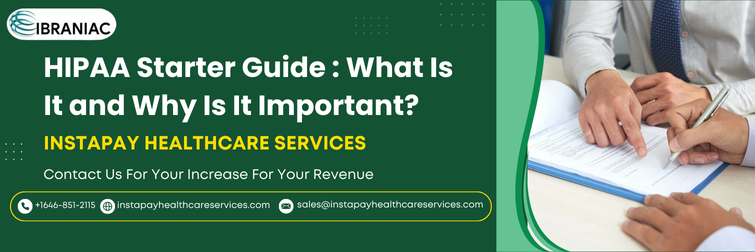
HIPAA Starter Guide: What Is It and Why Is It Important?
by admin |January 06, 2025 | 6 comments,
As complicated as healthcare is, patient data privacy remains a critical concern. Requiring robust protections that make sure sensitive patient information is safeguarded against breaches, misuse, and unauthorized access. The USA government has created systems that preserve patient information. One of those is HIPAA, a USA law that protects sensitive patient data.
What is HIPAA?
HIPAA, acronym for Health Insurance Portability and Accountability Act, is a USA law passed in 1996. With an aim to protect sensitive patient information, HIPAA ensures health data remains private and secure, while being shared between doctors, hospitals, or insurance companies.
Setting strict rules, HIPAA takes care of how healthcare providers and organizations handle your personal health information (PHI). Information of your medical history, treatment plans and billing information is included here. Data is only shared with those who need it for proper care or legal reasons.
The Need of HIPAA
Giving control over their personal health data, HIPAA is important for patients. Prior to HIPAA, health information was easily shared without patient consent. This led to privacy concerns. With HIPAA providing a set of standards that protects patients from unauthorized access, health details are effortlessly kept private.
Without HIPAA, sensitive health data could be easily exposed to hackers, thieves, or any one with bad intentions. This leads to identity theft or fraud. With strict security measures, HIPAA safeguards against these potential risks.
Information Protected Under HIPAA
- Patient name, address, DOB, SSN, biometric identifiers or other personally identifiable information (PII)
- Patient’s past, present or future physical and mental health condition
- Any care provided to the patient
- Information concerning the past, present, or the future payment for the care
Instapay Healthcare Services keeps compliance as its priority and stays on top of the latest changes in the industry. With our expertise, your practice adheres to all regulations, protecting you from penalties and enhancing your reputation.
Benefits of HIPAA for Patients
1) One of the biggest benefits for patients is knowing their health information is protected. Healthcare providers must obtain patient consent before sharing their medical details. This means patients have control over who sees their information.
HIPAA mandates healthcare providers to use secure systems and technologies to store and transmit patient data. This means health records are less likely to fall into the wrong hands.
Allows patients to access their medical records whenever they want. A patient can request a copy of their health information to review, making sure it’s accurate, and take it with themselves if they decide to switch providers
HIPAA encourages secure electronic communication between healthcare providers. This means faster, more accurate exchanges of health information between doctors, labs, pharmacies, and insurers.
HIPAA Benefits for Healthcare Providers
Following guidelines set by the Health Insurance Portability and Accountability Act, healthcare providers are able to build trust with their patients. Patients are more likely to feel comfortable sharing sensitive information when they know it is protected by the law.
Non-compliance with HIPAA leads to expensive fines and legal action. HIPAA compliance on the other hand, helps healthcare providers avoid the risk of penalties and lawsuits.
HIPAA encourages healthcare providers to use secure systems to communicate. With this approach, medical teams share accurate information in a timely manner. This improves the quality of patient care.
HIPAA is applicable for coding and billing processes as well. This secures all health-related billing practices, and makes sure it is accurate as well as compliant with the regulations. Mistakes and frauds are avoided this way, and delays in payment are reduced.
HIPAA Rules
- Privacy Rule : Mandates healthcare organizations to protect patient information and limit its disclosure to those who really need it for treatment, payment or healthcare operations.
- Security Rule : Sets standards to protect electronic health information (ePHI) by requiring the utilization of secure systems, encryption, and passwords.
- Breach Notification Rule : If a healthcare provider has a breach of PHI, they should notify affected parties and the Department of Health and Human Services (HHS) promptly.
- Omnibus Rule : Updates HIPAA to address issues like increased electronic data sharing and the use of social media by healthcare providers.
- Covered entities
- Business associates
- Individuals who have rights over their PHI, including the right to examine and obtain copies of their health records.
a) Health plans
b) Healthcare clearing houses
c) Healthcare providers that electronically transmit health information
a) Individuals or organizations that work for a covered entity and use or disclose protected health information (PHI).
HIPAA is a law with utmost importance in healthcare. It ensures patient privacy and security. Protecting bit the patient as well as the healthcare provider, the clearly outlined rules handle sensitive health information. Patients are rest assured that their health data is safe. Healthcare providers and medical billing professionals have smooth, compliant, and secure practices.